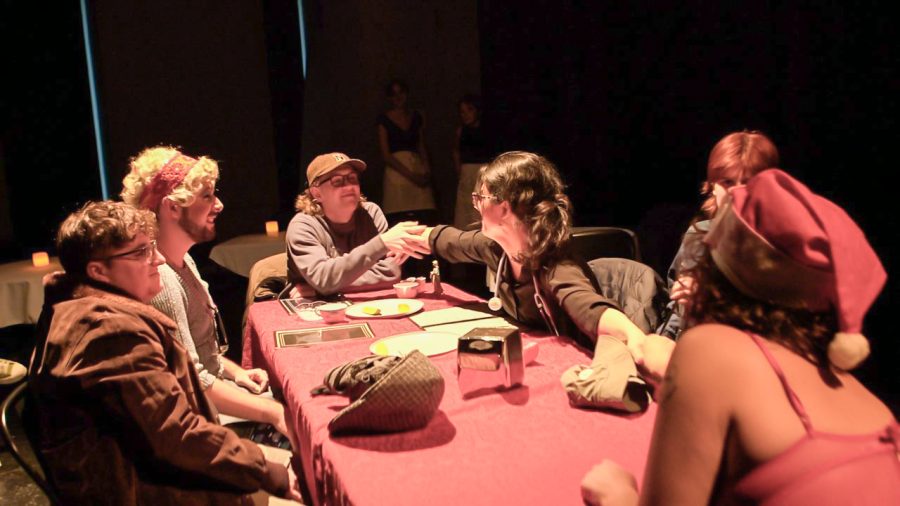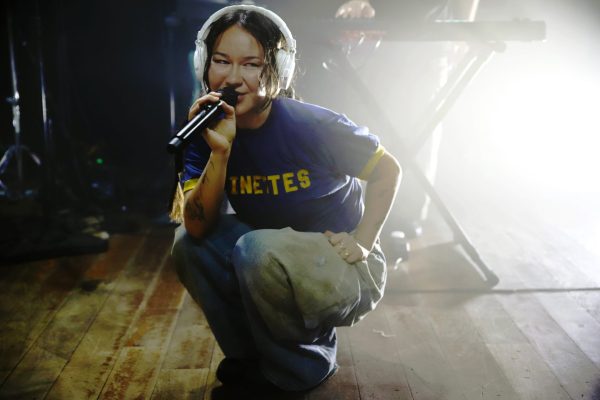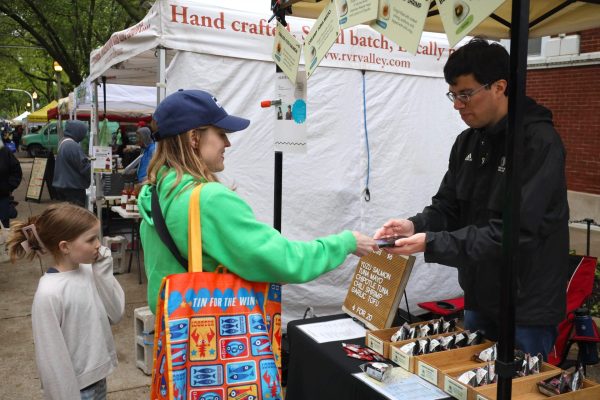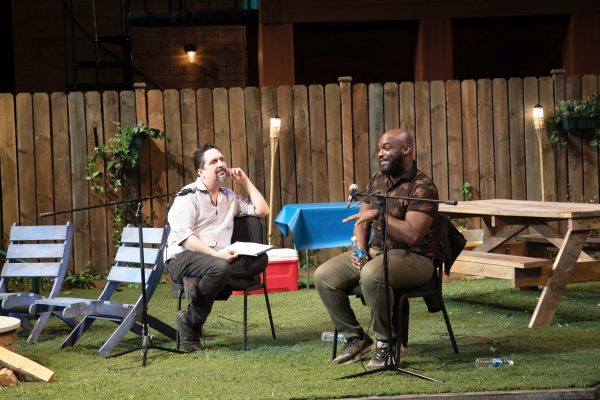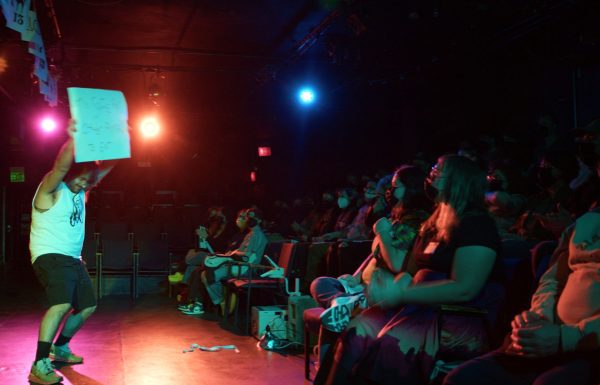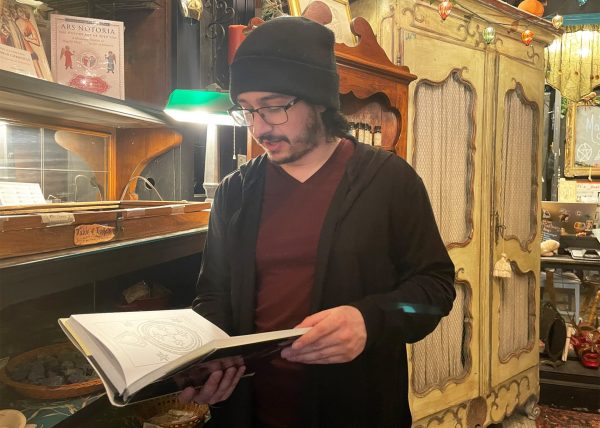‘Makeshift’ review: Setting comedy at the dinner table
Courtesy of Sophia Kelvit for The DePaulia
“Makeshift,” a comedy hosted by The DePaul Theater School and directed by Sophia Klevit depicts a jewish family dinner.
“Makeshift,” directed and written by junior Sophia Klevit, is a powerful comedic show about Jewish culture using the simplicity of a family dinner. Klevit originally wrote the script during fall quarter in a dramatic writing class for non-majors. She now boasts a sold out first show held at The Theatre School (TTS). From class assignment to reality, what “Makeshift” lacked in professional finesse it made up for in easy-going humor and genuine heart.
The play tells the seemingly mundane story of a Jewish family dinner in New York the night before Hanukkah. While sitting around the table, the characters crack jokes, spill secrets and swear extensively before their pastrami sandwiches even reach the table.
The pre-show entertainment consisted of three stand-up comedy acts, two of whom acted in “Makeshift,” that set a lighthearted and experimental tone for the night. Orrie Rindal talked about their relationship with their father, Chava Orli told woeful tales about tampons, and Sabrina Kalmans shared her experiences teaching at a Hebrew school despite not knowing Hebrew. It was a unique way to showcase talent in TTS while offering an appetizer of comedy before dinner began.
The minimal movement seated at the table meant the acting alone kept the energy high and audience engaged, something the cast of “Makeshift” easily succeeded at. Bubbie Carol, played by Ethan Schatz, in particular stole the show. With quippy one-liners and over the top mannerisms, Schatz gave a performance that kept all eyes on him.
For such a short runtime though, there were too many plotlines to keep track of or meaningfully expand on. Jake (Eli Finder) is trying to grow out of his childhood nickname, Molly (Orli) is pursuing a porn career, Ben (Rindal) is too focused on watching the football game, and Bubbie Carol (Schatz) is berating the waitress. The overlap of narratives may truly be reminicist of a Jewish family dinner, but within the play, it was dizzying to watch.
The creative direction taken for the show’s immersive experience was done brilliantly. Tucked into a room of TTS, the show starts the second you are seated, as the space was transformed into a faux restaurant. Dinner tables complete with tablecloths, candles and water glasses were scattered throughout the room and waitresses, played by Hannah Segell, Anna Gerstenberger and Edie Leonard, walked around offering patrons almond cookies and pickles. The “stage” was simply a table in the middle of the room differentiated by a bright red tablecloth. Even the show’s program was a stylized menu.
Here, you are not simply an audience member but an active participant in the drama unfolding only a table or two away. It created an atmosphere of familiarity and nosiness that showed realism behind the humor. The division between spectator and actor blurred everytime the actors interacted with other tables. When Bubbie Carol steals a pickle or Molly takes a selfie you can photobomb, you are no longer a viewer but rather a member of the family.
The best part of “Makeshift” is what happened after the actors took their final bow. Filtering out of the restaurant set, you could hear groups of friends sharing memories about their own Jewish family dinners. Stories about Bubbies sending back food and differences between non-Jewish and Jewish sides of the family filled the hallways with the same energy felt during the show. Even if not all of the jokes landed depending on your background, it was a show about love that evidently hit home for many viewers. Perhaps it was not the conversations on-stage we were supposed to focus on but rather the ones after the curtains closed.
“Makeshift” was a story of cultural pride that struck your heart with familiar retellings of family dinners and dynamic relationships. Klevit ultimately made a simple and successful show out of a script for class, earning an A+ from audience members for her ability to intertwine realism and comedy into one messy family affair.


